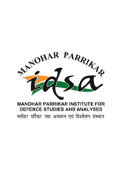Putin’s Visit to India: Resetting the Indo-Russian Partnership
Prime Minister Vladimir Putin's visit to India on March 11–12, 2010 signifies the beginning of a new phase in Indo-Russian friendship. In fact, this visit needs to be viewed in the context of the changing geopolitical and geo-economic realities in the international system.
- Meena Singh Roy |
- July 2010 |









